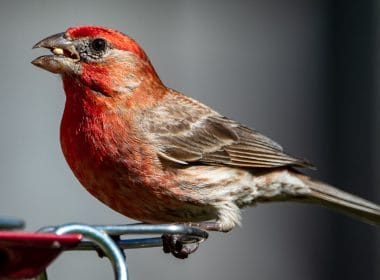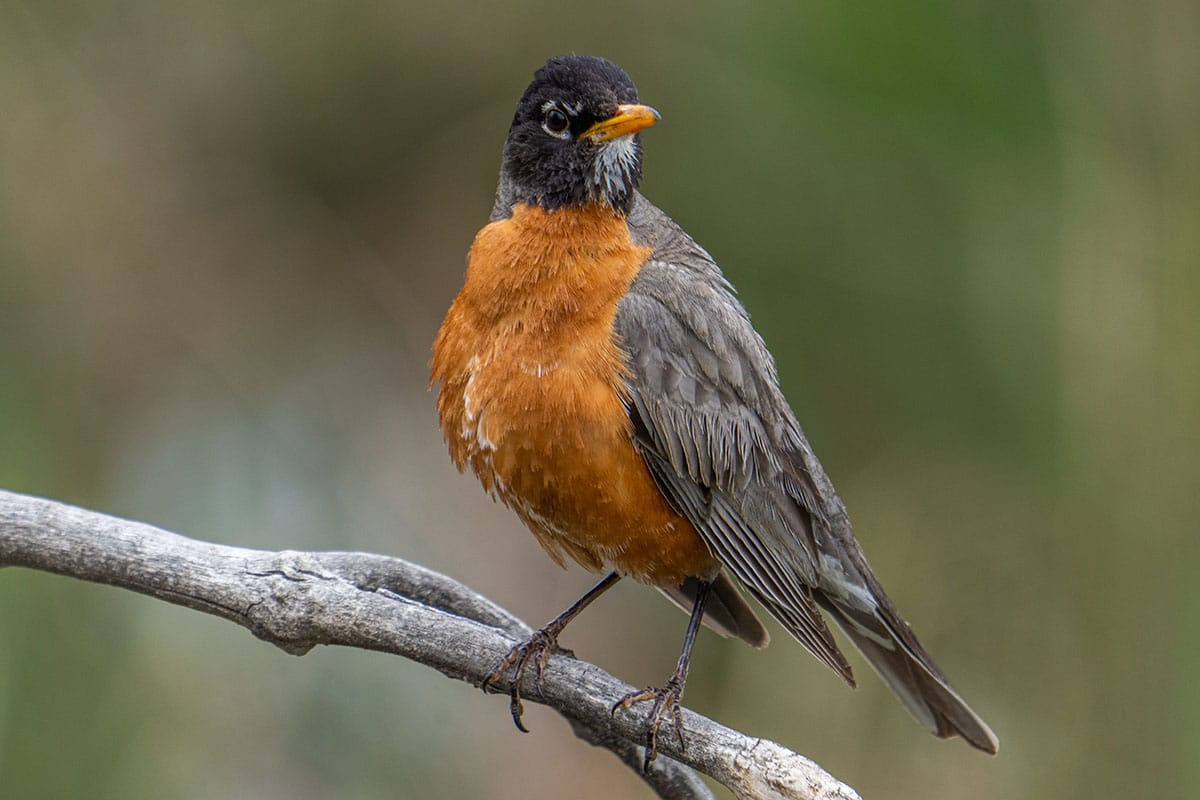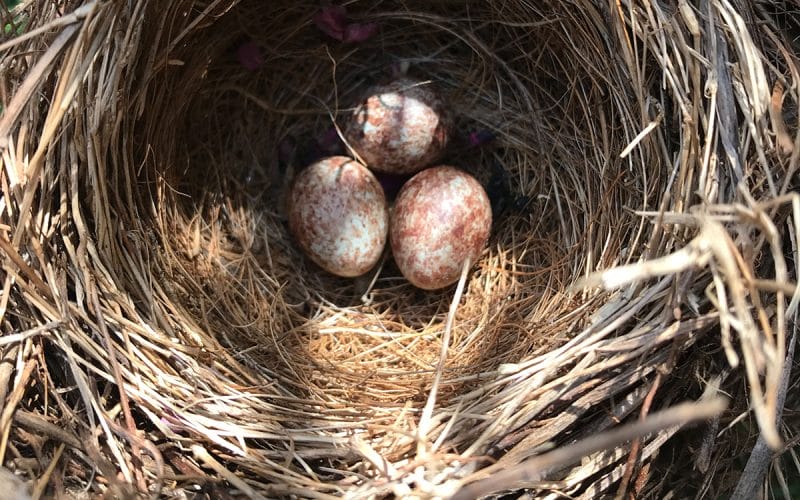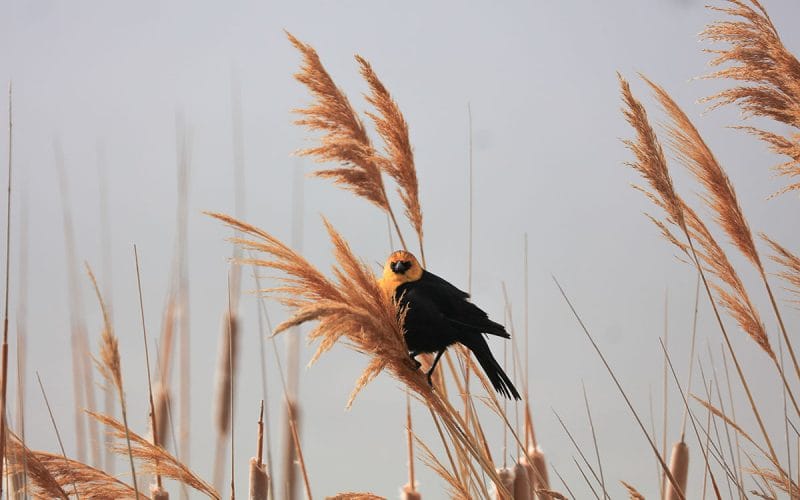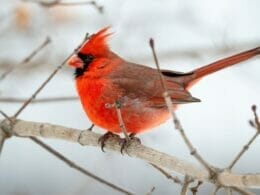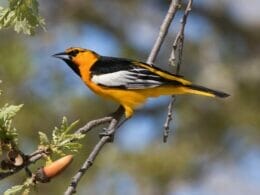The American Robin is a thrush, a medium sized reddish-breasted insectivorous bird belonging to the Turdidae family.
While these interesting birds are popular as one of the U.S.’s most favorite birds and are seen quite commonly around homes, the surprising question is “do robins scare other birds?”
Well, the answer to the question is rather unexpected. While in general, these birds are quite friendly, robins can be quite territorial.
In fact, they can be quite a bully in the garden, scaring away other birds frequenting the place.
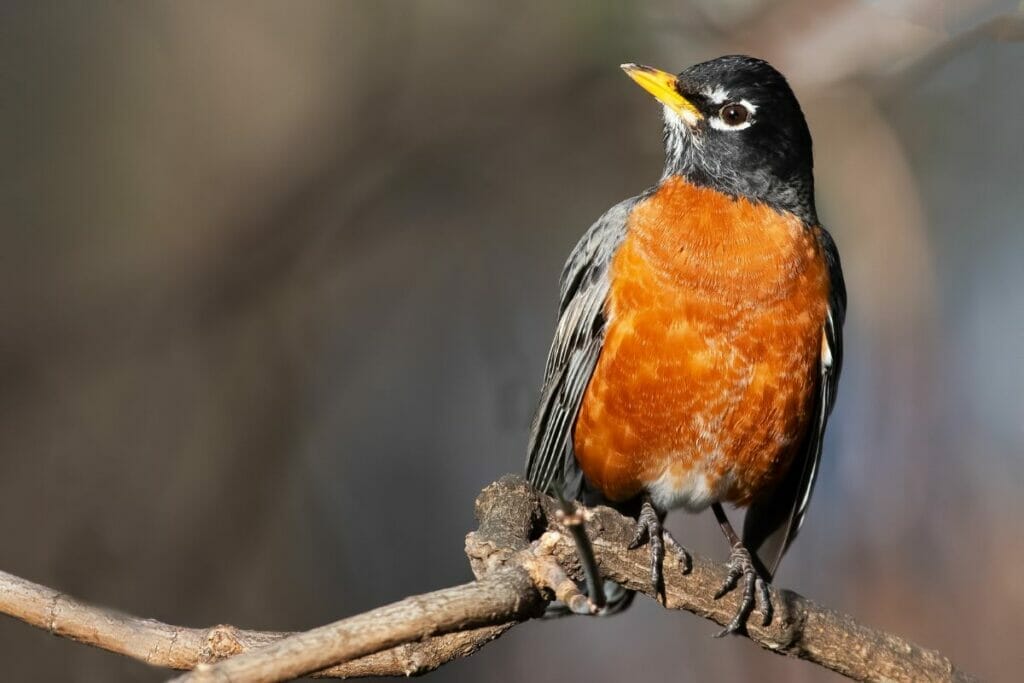
Do Robins Scare Other Birds?
The simple answer to the question, “do robins scare other birds?”, is “yes.” Weighing in at under 3 ounces, the seemingly friendly little robin can be quite a territorial and aggressive bird. The male robin is especially noted for its extremely territorial and aggressive behavior, tending to guard its territory fiercely, protecting its female and offspring.
Robins attack other competitors and males that may stray into their territory and often, they have been seen to attack them chest-on-chest and scare them away even when they are not provoked.
In fact, there are several instances of robins vigorously attacking their reflection in windows, mirrors and other reflective surfaces and this behavior is more common in spring during the breeding season.
There are many examples of male robins attacking red objects such as handkerchiefs, socks and items of clothing on a clothesline, toys and ornaments discarded on the lawns, etc., mistaking these objects for an intruder.
They have even attacked a stuffed robin violently placed in their territory, flapping wings vigorously and pecking at it to chase it away.
Author Note: Robins tend to get rather territorial about feeding stations or feeding areas, preventing other birds from trying to get too close by dive-bombing any bird landing on the feeder, warning them off by chirping loudly, scaring them away and even attacking them.

Or, they will simply sit on top of the bird feeder, not eat themselves and simply guard the food and not allow any other bird to approach.
Robins are among the few species of birds that do not migrate in the winter, retain their territory and protect it all through the year. And territorial disputes involving robins have even resulted in fatalities and in some areas, these account for over 10% of deaths of adult robins.
How to Prevent Robins from Scaring away Other Birds
The cute little red-breasted robin is quite an active bird; however, they can be a nuisance because of their loud chirping and territorial behavior, scaring away other birds.
There are a few tips and techniques that you can use to make your home less attractive for robins and keep them away.
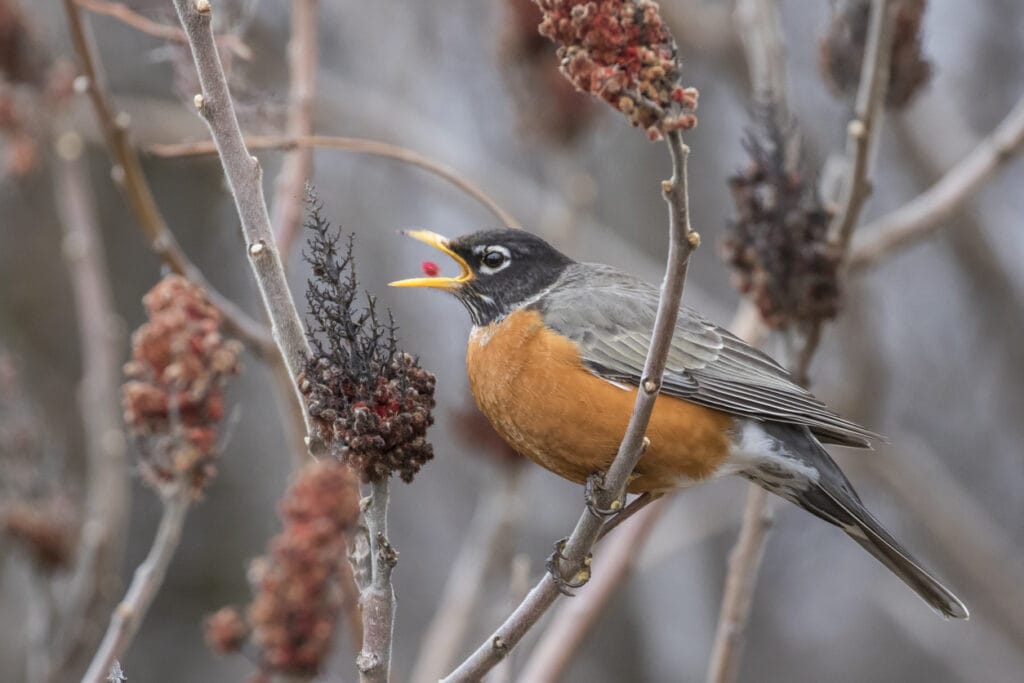
Use Cutouts of Predatory Birds
Robins are usually hunted by predatory birds such as hawks and owls and so, they tend to hide themselves away when they see these birds.
You can draw the outline of an owl or hawk, paint it black and install it on a tree, a rod in the garden or on top of your home. This will scare away the robins and prevent them from coming into the area.
Install Bird Netting on Fruit Trees
Typically, robins feed on worms in the daytime, and later in the day, they eat fruit. If you have any fruit trees or shrubs in your garden, this could be the main attraction for robins.
Author Note: Installing nets on your fruit trees and shrubs will make the fruits inaccessible to the robins and they will go elsewhere where fruits are available, keeping them away from your home.
You can easily purchase flexible bird netting in various lengths from your local garden or hardware store and secure it at the base of the fruit trees or shrubs to prevent the robins from getting to the fruits from below.
You can also use onion sacks to protect small individual branches with fruit. Crops like strawberries can be covered completely during the fruiting season.
Cover Any Exposed Soil
Robins subsist on worms that live in the garden soil and any open soil can make it easy for the birds to feed on the worms.
Also, the open soil is attractive to robins because they build their nest close by. So, by planting sod or grass, you can cover the exposed dirt or soil, which will help to keep the robins away from your home.
Move the Bird Feeder Away
If you have a bird feeder installed in your garden or backyard, not only does it attract other birds, but robins too, who love to get their food from the feeder. The robins get attracted by the food and then start nesting in close by areas.
So, to prevent robins from entering your garden and keep your home robin-free, move the bird feeder away from your home.
Keep the Window Blinds and Curtains Drawn
Robins are usually attracted to windows because when they see their reflection in them, they see them as rival birds.
And, often, they will start pecking at the window to drive the bird away.
You can keep robins away by drawing your window curtains or putting down the blinds so that the robins cannot see their reflection and get attracted.
Spray Chilli Peppers and Water Solution
Robins hate the smell of chili peppers and you can use a solution of water and chili peppers to keep them away from your home. Make a solution of water and chili peppers and place it in the sun for 1-2 days.
Fill the solution in a spray bottle and spray the areas frequented by robins. The smell of the chili peppers will drive the robins away and prevent them from returning.
This is another good way to deter robins from scaring away other birds.
Use Polybutene Gel
You can use polybutene gel, which is a non-toxic bird repellent that is not harmful to birds.
The polybutene gel is transparent and will not stain or damage the surfaces in your home. You can apply a thin line of polybutene gel with a caulking gun.
And, when the robins land on the sticky gel, they find it unpleasant and it drives them away, preventing them from returning.
The best thing about the polybutene gel is that you can use it on balconies, handrails, window ledges, gutters and even branches of trees. And, it can withstand the elements and is long lasting.
Hang CDs

You can hang up CDs in your garden, yard or around your home to drive away robins and prevent them from coming near your home.
The shiny surface of the CDs reflects the sunlight, creating a bright light, which helps to scare away the robins and get rid of them.
Scream Them Away
While this may seem strange, screaming at the birds helps to keep them away effectively.
Top Tip: When you see a robin entering your home, simply scream at it as loudly as you can. Your high-pitch scream can scare and drive them away and prevent them from returning.
You can also install an ultrasonic sound device that is motion-activated to scare away the robins. These ultrasonic pest repellent devices are also effective in driving away most animals from your lawn or yard.
Use Other Scare Devices
You can use visual deterrents like predator eye balloons, reflective diverters such as pie tins and reflective tape around areas frequented by robins to drive them away.
The Mylar or eye balloons should be suspended at around at least 3 feet above the bushes or trees or from the lines in between the posts.
You can purchase bird scare tape from any garden or hardware store and tape it to stakes that should be placed around 18 inches above the areas requiring protection such as newly planted or seeded beds.
The tape should be attached in a way that it moves freely in the breeze and flashes when the sun reflects off it.
In the case of strawberry patches, the robins typically land on the ground in between the strawberry plants and eat the ripe fruit. So, this makes the scare devices placed above the patch ineffective.
To ensure that the robins are driven away, place the scare tape in between the rows of plants at around 3 to 5 inches from the ground.
You can install a sprinkler that is motion-activated in your yard to prevent the robins from eating seeds in the grass.
Whatever scare devices you are using, make sure to move them around every other day or week to prevent the robins from getting accustomed to them. Make sure to install the scare devices in place before robins become an actual problem.
The Final Word
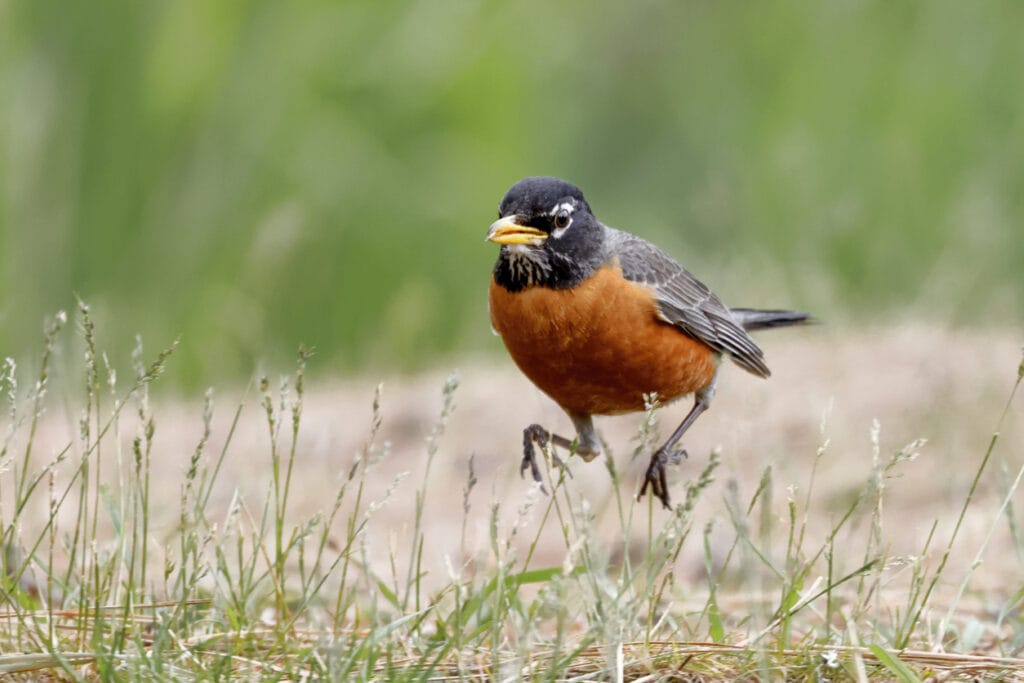
Robins, with their high-pitched chirping, is quite a familiar sight in gardens all year round. When you think of a little robin, all you can see is an adorable bird.
But it may come as a huge surprise that these cute little birds can be highly territorial and aggressive too. Robins scare away other birds.
They are simply not tolerant towards other birds on their turf and often attempt to scare and drive them away by viciously attacking them.
In fact, they may also attack animals and sometimes even humans if they perceive them as threats by dive-bombing them.
However, despite their aggressiveness, robins still remain popular and firm favorites.
Fly high friends!
